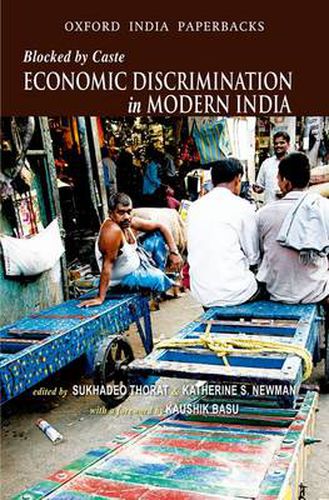Readings Newsletter
Become a Readings Member to make your shopping experience even easier.
Sign in or sign up for free!
You’re not far away from qualifying for FREE standard shipping within Australia
You’ve qualified for FREE standard shipping within Australia
The cart is loading…






This book explores contemporary patterns of economic discrimination faced by Dalits and religious minorities like Muslims, and the underlying attitudinal orientations that contribute to inequality in various spheres of life. It investigates empirical evidence of discrimination by focusing on the urban labour market as well as other markets in rural areas. It also analyses discrimination in non-market transactions like access to education, primary healthcare services, and fair price shops. Through detailed case studies, the essays examine the consequences of exclusion on unequal access to business, wage-earning, health status, and educational attainments and suggest possible remedies. The introduction provides a conceptual framework and the foreword by Kaushik Basu underscores the importance of developing an interface between economics and social sciences in order to give greater visibility to research on discrimination.
This book will interest students and scholars of Dalit and subaltern studies, economics, sociology, and politics. It will be an invaluable resource for policymakers and activists.
$9.00 standard shipping within Australia
FREE standard shipping within Australia for orders over $100.00
Express & International shipping calculated at checkout
This book explores contemporary patterns of economic discrimination faced by Dalits and religious minorities like Muslims, and the underlying attitudinal orientations that contribute to inequality in various spheres of life. It investigates empirical evidence of discrimination by focusing on the urban labour market as well as other markets in rural areas. It also analyses discrimination in non-market transactions like access to education, primary healthcare services, and fair price shops. Through detailed case studies, the essays examine the consequences of exclusion on unequal access to business, wage-earning, health status, and educational attainments and suggest possible remedies. The introduction provides a conceptual framework and the foreword by Kaushik Basu underscores the importance of developing an interface between economics and social sciences in order to give greater visibility to research on discrimination.
This book will interest students and scholars of Dalit and subaltern studies, economics, sociology, and politics. It will be an invaluable resource for policymakers and activists.